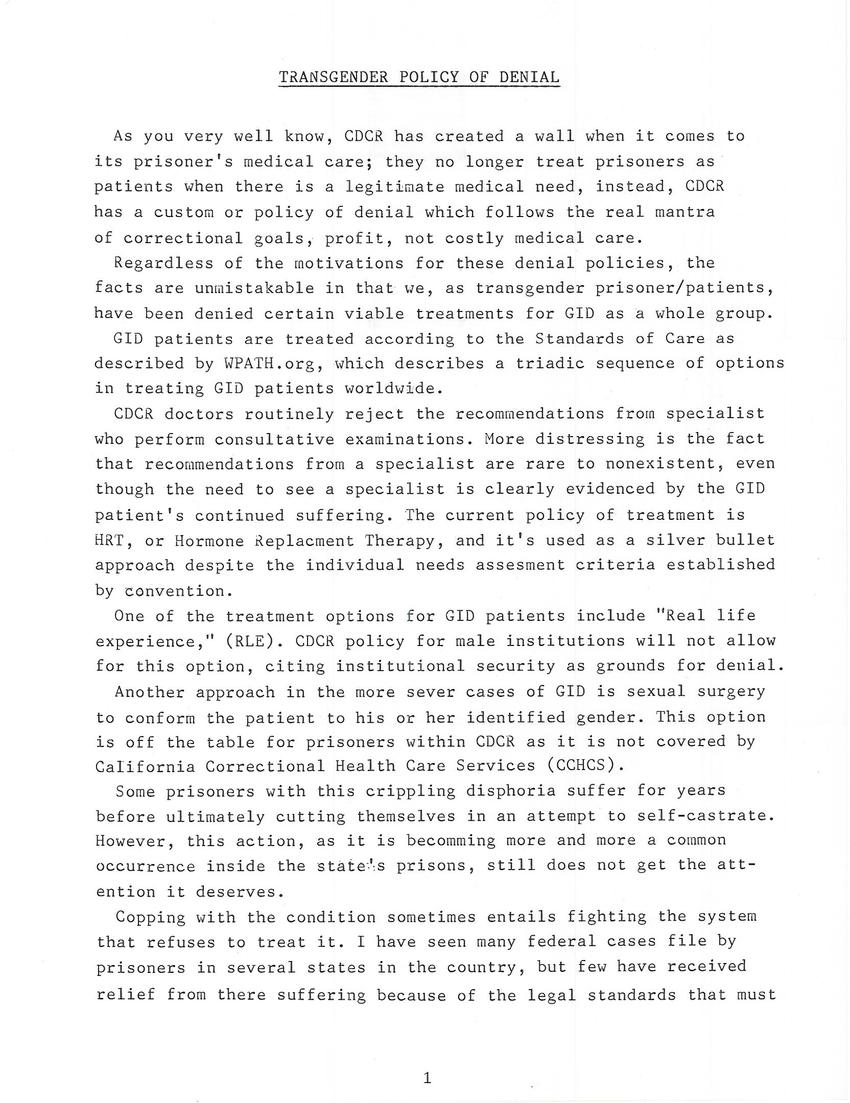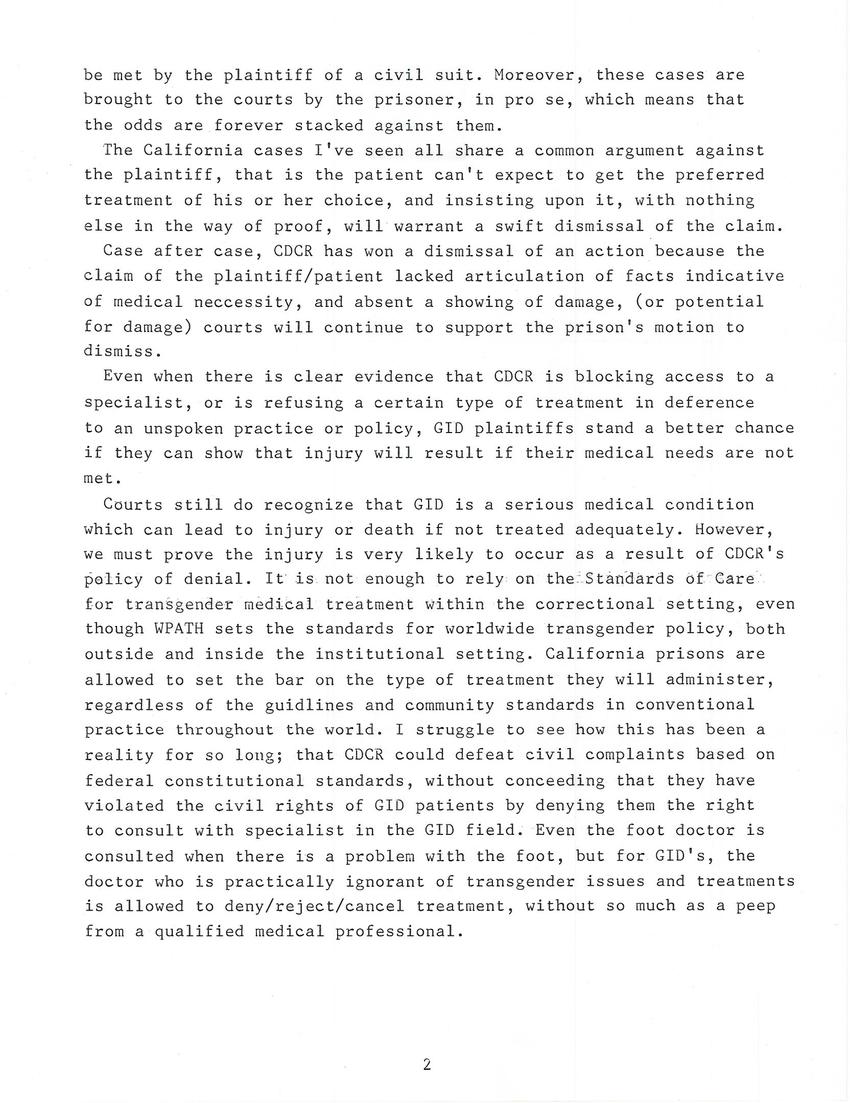
Transcription
TRANSGENDER POLICY OF DENIAL
As you very well know, CDCR has created a wall when it comes to its prisoners' medical care; they no longer treat prisoners as patients when there is a legitimate medical need. Instead, CDCR has a custom or policy of denial which follows the real mantra of correctional goals: profit, not costly medical care.
Regardless of the motivations for these denial policies, the facts are unmistakable in that we, as transgender prisoners and patients, have been denied certain viable treatments for GID as a whole group.
GID patients are treated according to the standards of care as described on WPATH.org, which describes a triadic sequence of options in treating GID patients worldwide.
CDCR doctors routinely reject the recommendations from specialists who perform consultive examinations. More distressing is the fact that recommendations from a specialist are rare to nonexistent, even though the need to see a specialist is clearly evidenced by the GID patient's continued suffering. The current policy of treatment is HRT, or Hormone Replacement Therapy, and it's used as a silver bullet approach in spite of an individual's needs for assessment criteria established by convention.
One of the treatment options for GID patients include "real life experience" (RLE). CDCR policy for male institutions will not allow it, citing institutional security for guards as cause for denial.
Another approach in the more severe cases of GID is sexual surgery to conform the patient to his or her identified gender. This option is off the table for prisoners within CDCR as it is not covered by California Correctional Health Care Services (CCHCS).
Some prisoners with this crippling disphoria suffer for years before ultimately cutting themselves in an attempt to self-castrate. However, this action, as it becomes more and more of a common occurrence within the state's prisons, still does not get the attention it deserves.
Coping with the condition sometimes entails fighting the system that refuses to treat it. I have seen many federal cases filed by prisoners in several states in the country, but few have received relief from their suffering because of the legal standards that must be met by the plaintiff of a civil suit. Moreover, these cases are brought to the courts by the prisoner, in pro se, which means that the odds are forever stacked against them.
The California cases I've seen all share a common argument against the plaintiff—that is that the patient can't expect to get the preferred treatment of his or her choice and insisting upon it with nothing else in the way of proof will warrant a swift dismissal of the claim. Case after case, the CDCR has won a dismissal of an action because the claim of the plaintiff lacked articulate facts that indicated medical necessity and, absent of showing damage (or potential damage), courts will continue to support the prison's motion to dismiss.
Even when there is clear evidence that the CDCR is blocking access to a specialist or is refusing a certain type of treatment in deference to an unspoken practice or polify, GID plaintiffs stand a better chance if they can show that injury will result if their medical needs are not met.
Courts still recognize GID as a serious medical condition which can lead to injury or death if not treated adequately. However, we must prove the injury is likely to occur as a result of CDCR's policy of denial. It is not enough to rely on the standards of care for transgender medical treatment within the correctional setting, even though WPATH sets the standards for worldwide transgender policy, both outside and inside the institutional setting.
California prisons are allowed to set the bar on the type of treatment they will administer, regardless of the guidelines and community standards in conventional practice around the world. I struggle to see how this has been a reality for so long; that CDCR could defeat civil complaints based on federal constitutional standards without conceding that they have violated the civil rights of GID patients by denying them the right to consult with a GID specialist. Even the foot doctor is consulted when there is a problem with the foot. But for GIDs, the doctor who is practically ignorant of transgender issues and treatments is allowed to deny, reject, cancel treatment without so much as a peep from a qualified medical professional.
Other posts by this author
|
2017 apr 29

|
2017 jan 4

|
2016 may 18

|
2016 mar 22

|
2016 mar 21

|
2015 may 31

|
More... |



Replies